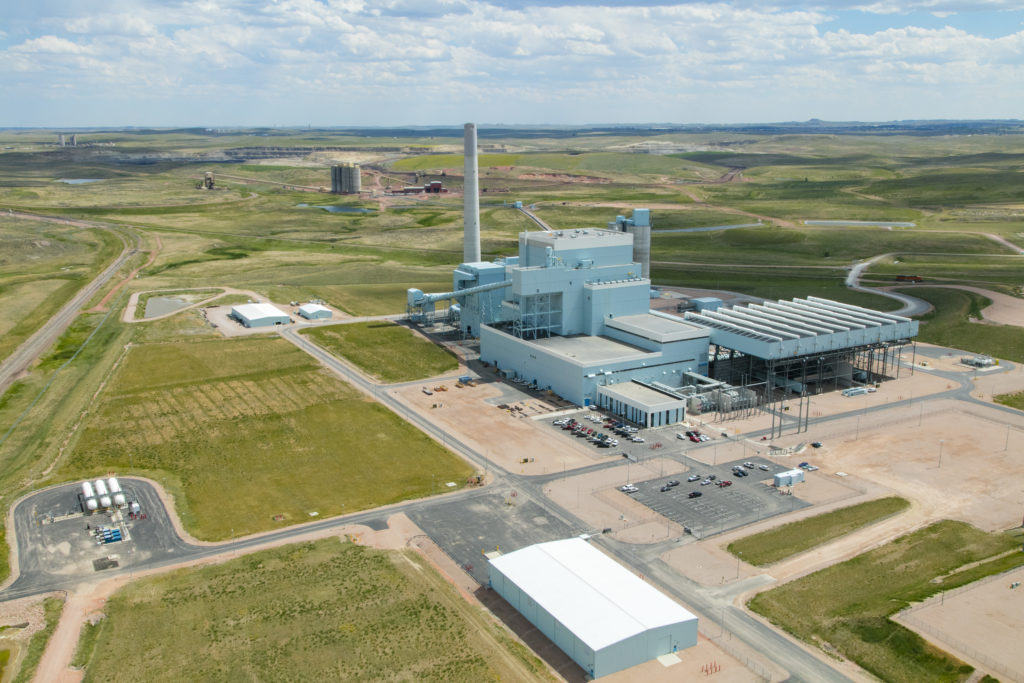
The Senate has approved legislation that would help co-ops develop technology to capture carbon dioxide emissions from coal and natural gas-fired power plants and turn them into useful products.
Senators on July 23 passed the bipartisan USE IT Act as part of a sweeping national defense bill. The bill would speed federal approval for carbon capture, utilization and sequestration projects and simplify permitting for CO2 pipelines.
Senate and House negotiators must now craft a final bill. The House-passed version of the National Defense Authorization Act did not include the USE IT Act, but senators say they plan to press for it as part of a final compromise.
“The best way to make American energy as clean as we can, as fast as we can, is through innovation, not government regulation,” said Sen. John Barrasso, R-Wyo., chairman of the Senate Environment and Public Works Committee. “The bipartisan USE IT Act … will do just that without raising costs for Americans.”
He said the bill holds “the key to significant carbon emissions reductions.” Barrasso is the lead sponsor of the bill, along with Sen. Sheldon Whitehouse, D-R.I., who said the bill will help slow climate change.
Basin Electric Power Cooperative CEO Paul Sukut told the Senate committee last year that the bill would spur new strategies to remove CO2 for reuse or storage.
Companies are researching ways to turn carbon dioxide into products such as carbon composites that can be used to make everything from wind turbine blades to bicycles. Work has also been done on “carbon upcycling” that mixes CO2 with industrial waste such as coal ash to create nanoparticles that can be used as additives in concrete.
Basin Electric, which is based in Bismarck, North Dakota, is a partner with Tri-State Generation and Transmission Association and NRECA in the Integrated Test Center at Dry Fork Station in Wyoming. The test center provides a place for researchers to “explore new and innovative solutions” to reduce CO2 emissions.
“The USE IT Act is important legislation to advance carbon capture and sequestration technology,” Sukut said. “Basin Electric has long sought solutions for cost-effective carbon dioxide reduction while providing low-cost and reliable power for our membership. The USE IT Act would provide additional support for research—such as that being done by the Wyoming Integrated Test Center located at our Dry Fork Station near Gillette—as well as streamline permitting of the infrastructure needed to permanently store carbon dioxide underground.”
Last year, NRECA and the Tennessee Valley Authority, which provides power to co-ops, became project partners with the U.S. Department of Energy’s National Carbon Capture Center to research the latest carbon-capture technologies.
In Texas, the University of Texas at Austin is conducting a carbon capture study at the natural gas-fueled Mustang Station of Golden Spread Electric Cooperative in Denver City.
The defense bill passed by the Senate also includes the bipartisan Nuclear Energy Leadership Act, which would direct the Department of Energy to increase support for research, development and demonstration of advanced reactors.
“For too long, the United States has lagged woefully behind on innovative nuclear energy technologies, which comes at great cost to our economy, our global leadership, and the environment,” said Sen. Lisa Murkowski, R-Alaska, chairman of the Senate Energy and Natural Resources Committee.
“Nuclear energy can … provide safe, clean, and affordable power to homes, schools, and businesses that traditionally rely on more costly energy sources,” said Murkowski, the lead sponsor of the bill along with Sen. Cory Booker, D-N.J.